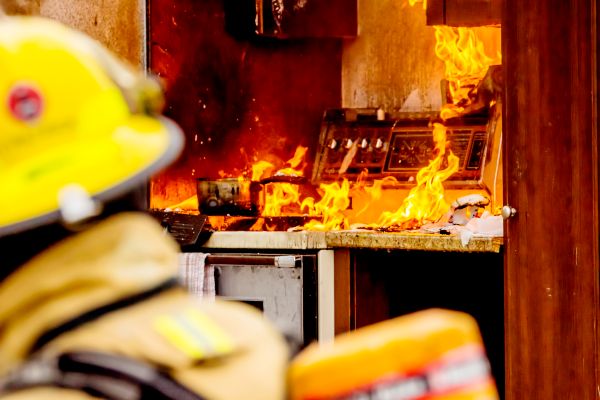Each year in October, the National Fire Protection Association brings us the National Fire Prevention Week Campaign and designates October as Fire Prevention Month. Established in 1896, the National Fire Protection association (NFPA) is a global nonprofit organization devoted to eliminating death, injury, property, and economic loss due to fire, electrical, and related hazards.
The History of Fire Prevention Week
Fire Prevention Week is observed yearly during the week of October 9th in remembrance of the Great Chicago Fire, which began on October 8, 1871. This horrendous inferno killed over 250 people, left 100,000 homeless, destroyed more than 17,400 structures, and burned over 2,000 acres of land.
Since 1922, the NFPA has sponsored the public observance of Fire Prevention Week. In 1925, the NFPA has sponsored the public observance of Fire Prevention Week. In 1925, President Calvin Coolidge proclaimed Fire Prevention Week a national observance, making it the longest-running public health observance in our country.
2023 Fire Prevention Week Campaign Theme
According to the NFPA, this year’s Fire Prevention Week™ campaign “Cooking safety starts with YOU. Pay attention to fire prevention™,” works to educate everyone about simple yet important actions they can take to keep themselves and those around them safe when cooking. We’re nearing the season of holiday dinners with family and friends. Unfortunately, this season also brings a drastic rise in cooking fires. Cooking fires are the leading cause of house fires and related injuries. Unattended cooking is the leading cause of cooking fires and deaths.
Stay Safe – Cooking Fire Prevention Tips from the NFPA
Stand By Your Pan
- Do not leave the kitchen if you are frying, boiling, grilling, broiling food, etc.
- Open flames and hot burners must always be attended.
- Turn off burners if you have to step away.
- If you’re baking or roasting food in the oven or using an appliance such as a crockpot, check it regularly.
- Using a timer is useful, especially during the holidays when you can be distracted by guests. “Hey Alexa, set a 30-minute timer!”
Cook With Caution
- Keep utensils, oven mitts and rags, food packaging, and such away from burners and open flame.
- Keep your workspace, burners, and ovens clean.
Danger Zone – Keep a Kid-free and Pet-free Area
- Children should understand cooking safety.
- They should also learn to steer clear of hot items. Scalding liquids and hot items pose a danger to wandering hands!
- Create a kid-free (and pet-free) zone in the kitchen. You don’t want young ones touching a hot pan, or the chef tripping over a little one or lounging fur baby.
Be Aware of Cooking Appliance Safety
- Keep an eye on appliances while in use, or while still hot.
- Make sure appliances are in a safe and secure area while in use.
- Unplug appliances when not in use.
- Keep electrical cords away from hot burners and items.
- Be aware of how to properly and safely use each appliance.
- Properly clean appliances after each use (and after they cooled off).
To Fight the Fire…or Not?
- If you have a cooking fire, NFPA says “When in doubt, just get out!” Close the door behind you to help contain the fire, and call 9-1-1.
- Have a fire extinguisher on-hand and understand how to use it.
- Know how to handle a grease fire. Oil and water do not mix, for that reason you must not put water on a grease fire.
- You should *safely* smother a grease fire by cutting off it’s source of oxygen. For example, if you have a stove-top fire, you can put a lid on the pan and turn off the burner.
- With an oven fire, you should turn off the oven and keep the door shut.
- Do not use water on an electrical fire.
Last, but not least; be sure to check that your smoke detectors have fresh batteries and are functioning properly. Smoke detectors can save lives!
Cooking fire prevention is key. However if you experience smoke damage or a fire in your home or business, contact our team to learn how we can help clean up and restore your property.

